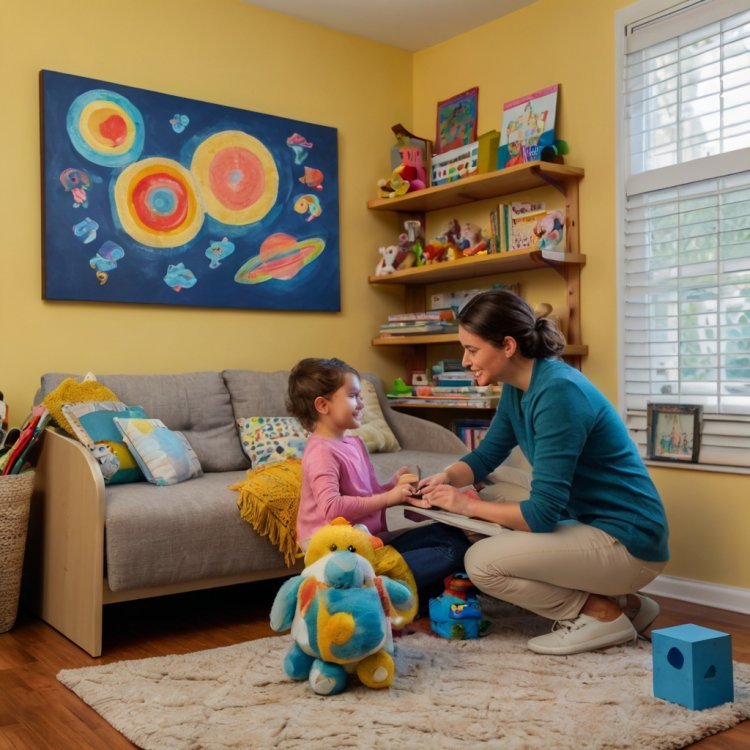The Rise of Online Therapy for Kids: Benefits, Challenges, and Considerations
Explore the evolution of mental health care for children through online therapy. Discover its benefits, challenges, and considerations for parents and therapists navigating this innovative approach.

In recent years, the landscape of mental health care for children and adolescents has evolved significantly with the advent of online therapy. This innovative approach has gained traction, especially in light of the COVID-19 pandemic, which underscored the need for accessible and convenient mental health services. Online therapy for kids offers a range of benefits but also presents unique challenges and considerations for parents, therapists, and educators alike.
Understanding Online Therapy for Kids
Online therapy, also known as teletherapy or telehealth, involves providing mental health services remotely through digital platforms such as video conferencing, messaging apps, or phone calls. For children and adolescents, this can include individual therapy sessions, family therapy, group therapy, and even specialized interventions like play therapy conducted virtually.
Benefits of Online Therapy for Kids
-
Accessibility and Convenience: One of the primary advantages of online therapy is its accessibility. It eliminates geographical barriers, allowing children from rural or underserved areas to access specialized mental health care that may not be available locally.
-
Comfort and Familiarity: Children often feel more comfortable and less intimidated communicating from their own home environment. This familiarity can help them open up more easily to therapists, leading to more effective therapy sessions.
-
Flexibility: Online therapy offers scheduling flexibility, accommodating busy family schedules and reducing the need for travel time to appointments. This flexibility can be particularly beneficial for families with multiple children or working parents.
-
Specialized Services: Virtual platforms can host a variety of therapeutic interventions tailored to children's needs, including art therapy, cognitive behavioral therapy (CBT), and social skills training. Therapists can use interactive tools and games to engage young clients effectively.
Challenges of Online Therapy for Kids
-
Technical Issues: Reliable internet connection and technical proficiency are essential for successful online therapy sessions. Connectivity issues or software glitches can disrupt sessions and affect the therapeutic process.
-
Engagement and Attention: Keeping children engaged during virtual sessions can be challenging, especially for younger clients or those with attention deficits. Therapists may need to employ creative strategies to maintain focus and participation.
-
Privacy and Security Concerns: Ensuring the confidentiality and security of online therapy sessions is crucial. Parents and therapists must use secure platforms and establish clear guidelines to protect children's privacy.
-
Lack of Physical Cues: Non-verbal cues and physical interactions play a significant role in traditional therapy settings. In virtual sessions, therapists may need to rely more on verbal communication, which can sometimes limit the depth of therapeutic engagement.
Considerations for Parents and Caregivers
-
Research and Choose Wisely: When selecting an online therapy provider for their child, parents should research credentials, read reviews, and ensure the therapist is licensed and experienced in working with children.
-
Prepare the Environment: Create a quiet, comfortable space for therapy sessions free from distractions. Ensure devices are charged, and test the internet connection before each appointment.
-
Engage in the Process: Stay actively involved in your child's therapy journey. Communicate regularly with the therapist, provide feedback, and discuss any concerns or progress observed at home.
-
Monitor Emotional Well-being: Pay attention to changes in your child's behavior, mood, or social interactions. Online therapy is a tool to support mental health, but parental awareness remains critical in identifying potential issues.
The Future of Online Therapy for Kids
As technology continues to advance and society embraces digital solutions, the future of online therapy for children looks promising. Integrating teletherapy into school settings, collaborating with pediatricians, and expanding insurance coverage for virtual mental health services are steps toward enhancing accessibility and effectiveness.
Conclusion
Online therapy represents a significant advancement in child and adolescent mental health care, offering accessibility, flexibility, and specialized interventions that traditional methods may not always provide. While challenges such as technical issues and maintaining engagement exist, the benefits of accessible care and comfortable environments often outweigh these concerns. For parents and caregivers, actively participating in the therapy process and ensuring a supportive environment are crucial steps in maximizing the effectiveness of online therapy for their children. As the field continues to evolve, integrating technological innovations responsibly will be key to meeting the mental health needs of today's youth effectively.
In summary, online therapy for kids is not just a temporary solution but a transformative approach that has the potential to improve the well-being of children and families worldwide.
What's Your Reaction?




















